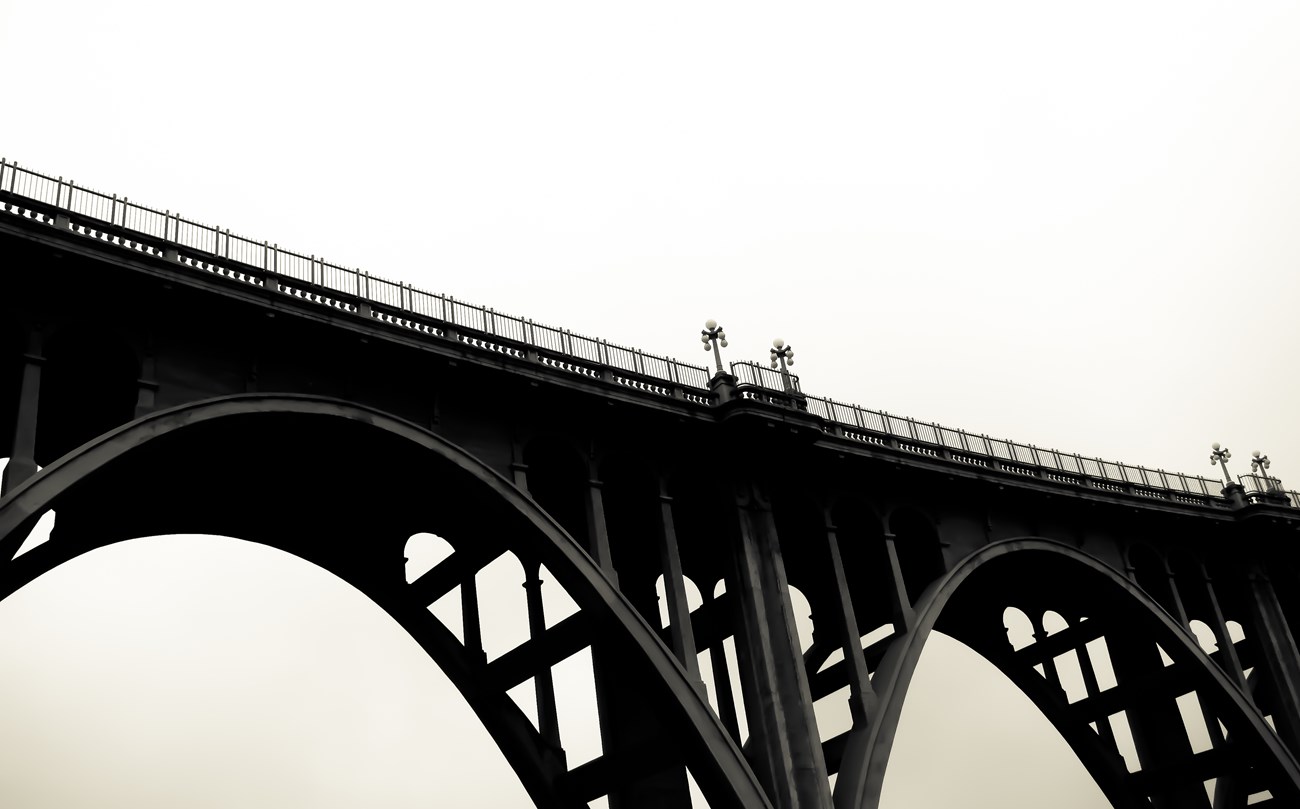Last updated: December 3, 2021
Article
Route 66: California

Photo courtesy of Rhys Martin
Miles: 345 (approx.)
California. Its name beckons like a golden promise on the horizon. Route 66 travelers coming from the east were often wayfarers seeking a fresh start in a new land, and in the early to middle years of the twentieth century, California was that new land, brimful of promise and rumors of plenty.
But before travelers could reach the “Land of Milk and Honey”, they had to traverse a forbidding landscape: the Mojave Desert. Those fleeing the Dust Bowl of the plains states faced one last test before they arrived in the Los Angeles basin or in one of the fertile valleys on the other side of the mountains. For people driving the automobiles of the 1920s and 1930s, this obstacle was daunting. The route between Needles and Barstow, on the western edge of the Mojave, is one of the hottest legs of the road anywhere along Route 66’s more than 2,000 mile length.
But Route 66 in the desert portion of Southern California is a gateway – to such wonders as Disneyland, the Hoover Dam, and Las Vegas, all of which can be accessed by taking one of the highways that branches off the old road. It also leads to the high passes of the San Gabriel mountains, carrying travelers up to Cajon Pass, before dropping into the verdant Southern California basin.
In the Los Angeles area, the remnants of Route 66 are not a single road leading to the piers at Santa Monica; instead, Route 66 survives in fragments that fan out over part of the L.A. region like a delta. As a thruway, Route 66 has been wholly supplanted by the Freeways that criss-cross the L.A. basin in a vast arterial pattern.
Preservation
In 1990, the California Historic Route 66 Association was founded to promote the preservation and enjoyment of Route 66. In addition, there are now approximately 16 National Register listings for properties and districts associated with Route 66 in California. As well, the National Park Service Route 66 Corridor Preservation Program has supported four cost-share grant projects, including restoration of two historic signs in Highland Park, and the Aztec Hotel in Monrovia.
Barstow
Fontana
Goffs
Los Angeles
Broadway Theater and Commerical District Boundary Increase
Monrovia
Needles
Pasadena
San Bernardino
South Pasadena
Oaklawn Bridge and Waiting Station
South Pasadena Historic District
Upland
National Park Service Sites
Santa Monica Mountains National Recreation Area
National Park Service Sites Near Route 66
U.S. Forest Service
San Bernardino National Forest
California Bureau of Land Management
California Office of Historic Preservation
California Department of Transportation
California Main Street Program
California Preservation Foundation
